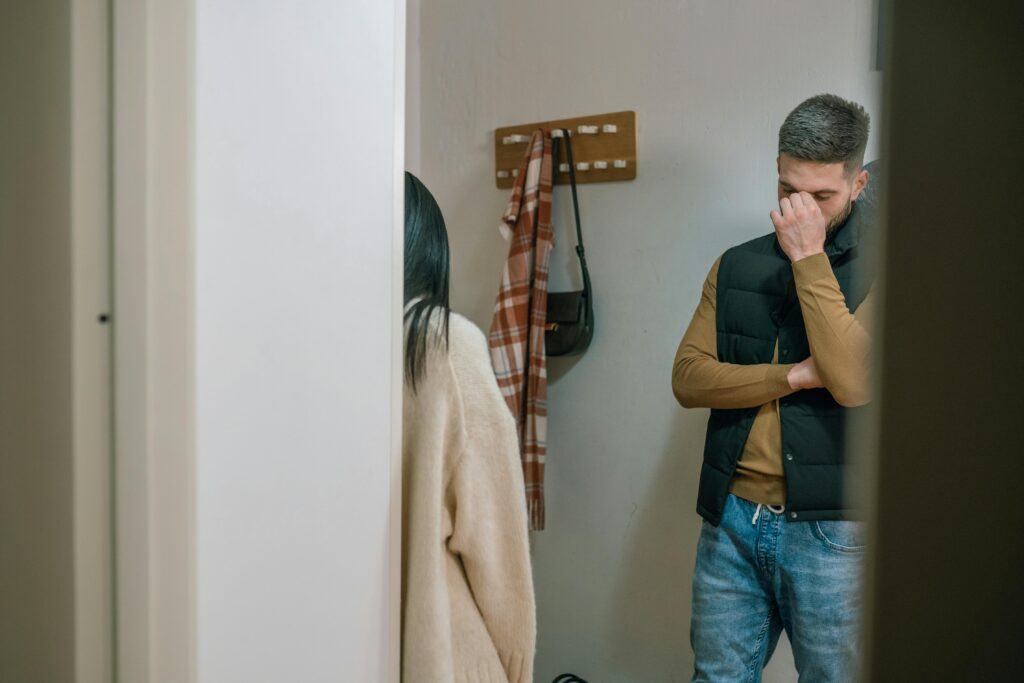- Positive Perspective: Moving From Commiseration to Connection - January 13, 2026
- Your Problem vs Our Problem: Shifting to the “We” Perspective - November 26, 2025
- How To Rebuild Trust After Betrayal (Even If It Feels Impossible) - October 15, 2025
Have you ever considered the similarities between dating and fashion? Similar to fashion, dating has trends that come and go with the seasons and fan based popularity. Do you remember a time when people used terms such as “courting,” “going steady,” and “getting pinned” when referring to dating and romantic partners? Do you remember when using these terms stopped? Similar to fashion trends, these terms were popular for a period of time and then seemed to fade away as new terms came to replace them.
What terms do people use now and are you familiar with them? Have you ever heard a term and felt embarrassed to ask what it means? Here’s a breakdown of some of the more current pop culture terms surrounding dating today:
- Ghosting: A sudden and complete ending of communication with a romantic interest, without explanation.
- Breadcrumbing: When a person gives just enough attention to keep someone interested without committing to a relationship.
- Situationship: An undefined romantic relationship lacking the commitment of a traditional relationship.
- Cuffing/cuffing season: Seeking a temporary relationship during a specific time of year, often during the colder months.
- Love Bombing: Excessive displays of affection and attention early in a relationship to manipulate or control the other person.
Have you experienced any of these dating trends without realizing? Have you found that some of these terms are now part of your current vocabulary? Are you on dating apps explicitly stating that you are not looking for situationships?
These modern dating terms have now become the new normal (the current trend, if you will) and are common barriers experienced by those who are dating with the intent to look for and enter a serious, committed relationship.
Situationships vs. Secure Love: What’s the Difference?
Today people often find themselves in situationships and stay because it causes a false sense of security. “If it doesn’t work out with this person, I’ll still have my situationship.” Translation: “I won’t be alone.” The fear of being alone is so strong that we will often choose the path that guarantees we will “still have someone” even if that someone is not providing us with the relationship we really desire. You can think of a situationship as a step down from consensual non-monogomy (CNM, similar to but not exclusively polyamory) relationships. CNM relationships are built on effective and healthy communication and the understanding that each partner is open to having other romantic/sexual partners. Situationships leave us with a person who is not committed to you/the relationship and has an excuse to not show you respect through basic communication. “I didn’t think I needed to tell you, we’re not in a relationship.”
I often hear feedback that we enter into relationships not knowing that they will turn into situationships. Why does this happen? A common reason is that we hold the hope that a person will change their mind about wanting a relationship with us when they get to know us and realize all the amazing qualities we have to offer (looking at our hopeless romantics out there). Another reason could be that we are not spending enough time having conversations to understand someone’s intentions, or we simply are not listening and hearing the “red flags.”
John and Julie Gottman’s research discusses common key factors that contribute to relationship stability and finding a more secure love. The Sound Relationship House highlights how to build a strong relationship through the foundations of friendship, intimacy, and shared meaning.
A Breakdown of The Sound Relationship House:
- Love Maps: Knowing your partner deeply, their inner world, their history, and how this shapes them into the person they are today.
- Fondness and Admiration: Regularly expressing verbal appreciation and positive feelings for your partner.
- Turning Towards: Responding to your partner’s bids for attention and connection, rather than turning away or against.
- The Positive Perspective: Giving your partner the benefit of the doubt, rather than negatively judging their actions.
- Accepting Influence: Being willing to be influenced by your partner and compromise.
- Dialoging about Problems: Developing healthy communication patterns to address conflicts constructively.
- Self Soothing: Being able to regulate yourself when conversations get too overwhelming.
- Making Life Drams Come True: Understanding the underlying dreams and fears behind perpetual problems.
- Creating Shared Meaning: Building a life together with shared values, rituals, role, and goals.
- Trust and Commitment: Believing in your partner’s good intentions and being dedicated to the relationship.
How to Choose a Partner You Can Actually Thrive With
Good relationships are built off a good friendship foundation.
This may be a cheesy saying that does not feel realistic for some, but there is truth to it. Going through life and dealing with relationship stressors can feel difficult for anyone. Imagine how much easier it might feel to acknowledge that you get to go through those things with your best friend: someone who knows you, understands you, and wants the best for you.
How do you know if you have a good friendship with someone?
The Gottman’s consider these three factors when building a friendship foundation:
- Love Maps
- Fondness and Admiration
- Turning Towards
I like to tell my couples that you expect your friends to know you (love maps), to like you (fondness and admiration), and to engage with you (turning towards). That is how you know you have a good friendship with someone.
Can you expect that from your partner too? Hopefully, preferably. However, while it might be something that comes naturally to some, it is something that others have to actively work on creating and maintaining.
So start asking the hard and serious questions from the beginning. Whether it is a tag line on your dating profile or a list of first date must ask questions. Find out if the person across from you, going through life with you, is the person who can help you build a secure love.
Do you find yourself moving from one situationship to another but desire more? Are you the one ghosting or breadcrumbing potential romantic partners and want to do differently?
Visit www.sdrelationshipplace.com or call us at (619) 535-8890 to schedule a consultation and get connected with a San Diego therapist who specializes in utilizing Gottman Method skills to help individuals or couples navigate the modern dating world.



